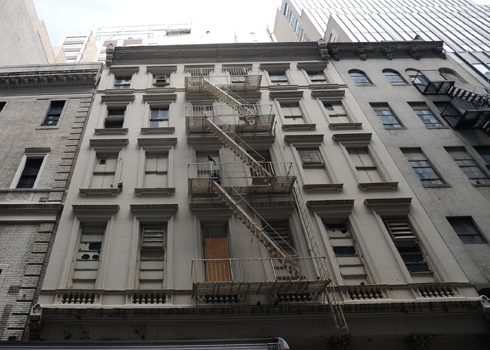Fewer Americans have a positive view toward Islam today than in the wake of 9/11. According to the latest ABC News/Washington Post poll of national views on the Cordoba House project in Lower Manhattan and the planet’s second-largest religion, just 37% of Americans have a favorable opinion of the Islamic faith. That’s “the fewest in ABC/Post polls dating to October 2001 (albeit by just 2 points),” according to the release.
In an ABC/Post poll released Oct. 9, 2001 — less than a month after the attacks on New York and Washington — 47% of Americans said they had favorable attitude toward Islam. Today, as we near the ninth anniversary of those attacks, that number is lower by ten points. In those years, the percentage of Americans viewing Islam positively dropped in ABC/Post polling, hovering at around 40% before dropping to it’s lowest point in today’s poll, which comes after a summer of open vitriol toward Islam by many prominent conservative leaders. The last time this few Americans told pollsters that they had a favorable view toward Islam came when American forces were still hunting down Saddam Hussein in Iraq — back in September, 2003.
When it comes to overtly negative views toward Islam, though, the situation has improved for Muslims in America a bit since the immediate aftermath of 9/11. A total of 49% of respondents in the latest poll said they have an unfavorable view of the faith, “essentially the same as in the spring, but well up from its lows in 2002, when many were undecided,” the pollster writes.
Here’s what you might call the buried lede in this post: More than a quarter of respondents — 26% — said they “have at least some feelings of prejudice against Muslims.” That’s about the same number as admitted prejudice in a March 2006 ABC/Post poll but fewer than openly admitted racial prejudice (35%) in a poll from last year.
So, who are the Muslim-haters? As we’ve seen in past polling, the split between those who have a favorable view toward the practice of Islam and those who don’t falls along age, education and partisan lines:
Democrats are twice as likely as Republicans to view the religion favorably, 49 percent vs. 24 percent. Young adults, the most-educated Americans, liberals and those with no religion are most apt to view Islam favorably; their opposites are most critical of the faith.
Views on violence follow a similar pattern. More than four in 10 Republicans, 43 percent, say mainstream Islam encourages violence against non-Muslims. That subsides to 24 percent of Democrats and 29 percent of independents.
There’s more unanimity when it comes to the Cordoba House project, which Americans continue to overwhelmingly oppose in the ABC/Post poll. That’s a pattern we’ve seen for a while now. The TPM Poll Average for national attitudes toward the Lower Manhattan shows 62.3% of Americans opposing the project and just 33.3% supporting it.
In the ABC/Post poll, there’s evidence that opposition to the mosque — the subject of political rhetoric all across the spectrum for more than a month now — could affect how things turn out at the polls in November:
[T]he results suggest political risk in advocating construction of the facility at its planned location. That’s because 42 percent of registered voters say they feel strongly enough about the issue that it may influence their votes — and 80 percent in this group oppose construction.
That’s a net total of 34 percent who both oppose construction and say the issue could affect their votes. Their opposites — the number who favor construction, and say the issue could affect their vote — is far lower, 8 percent.






